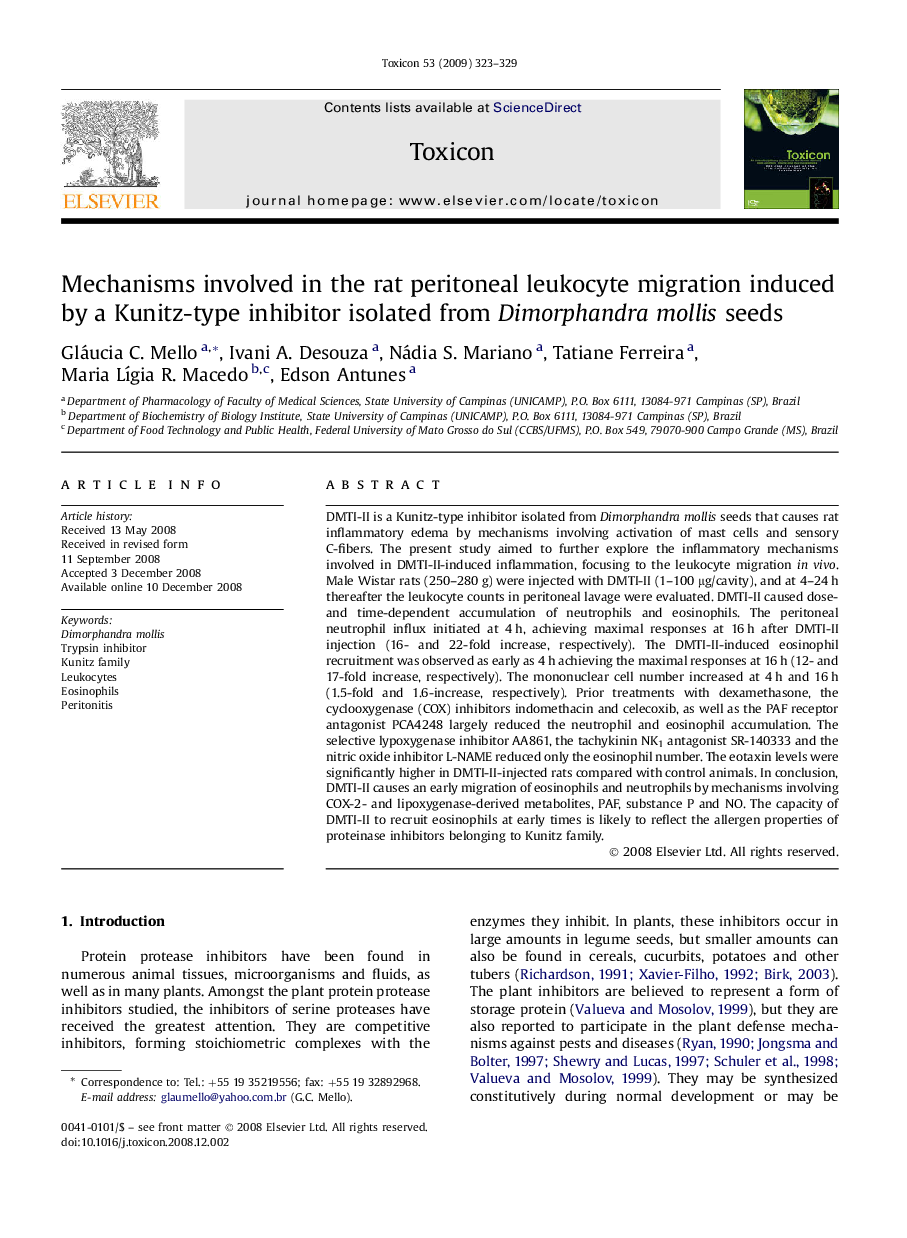| Article ID | Journal | Published Year | Pages | File Type |
|---|---|---|---|---|
| 2065744 | Toxicon | 2009 | 7 Pages |
DMTI-II is a Kunitz-type inhibitor isolated from Dimorphandra mollis seeds that causes rat inflammatory edema by mechanisms involving activation of mast cells and sensory C-fibers. The present study aimed to further explore the inflammatory mechanisms involved in DMTI-II-induced inflammation, focusing to the leukocyte migration in vivo. Male Wistar rats (250–280 g) were injected with DMTI-II (1–100 μg/cavity), and at 4–24 h thereafter the leukocyte counts in peritoneal lavage were evaluated. DMTI-II caused dose- and time-dependent accumulation of neutrophils and eosinophils. The peritoneal neutrophil influx initiated at 4 h, achieving maximal responses at 16 h after DMTI-II injection (16- and 22-fold increase, respectively). The DMTI-II-induced eosinophil recruitment was observed as early as 4 h achieving the maximal responses at 16 h (12- and 17-fold increase, respectively). The mononuclear cell number increased at 4 h and 16 h (1.5-fold and 1.6-increase, respectively). Prior treatments with dexamethasone, the cyclooxygenase (COX) inhibitors indomethacin and celecoxib, as well as the PAF receptor antagonist PCA4248 largely reduced the neutrophil and eosinophil accumulation. The selective lypoxygenase inhibitor AA861, the tachykinin NK1 antagonist SR-140333 and the nitric oxide inhibitor L-NAME reduced only the eosinophil number. The eotaxin levels were significantly higher in DMTI-II-injected rats compared with control animals. In conclusion, DMTI-II causes an early migration of eosinophils and neutrophils by mechanisms involving COX-2- and lipoxygenase-derived metabolites, PAF, substance P and NO. The capacity of DMTI-II to recruit eosinophils at early times is likely to reflect the allergen properties of proteinase inhibitors belonging to Kunitz family.
